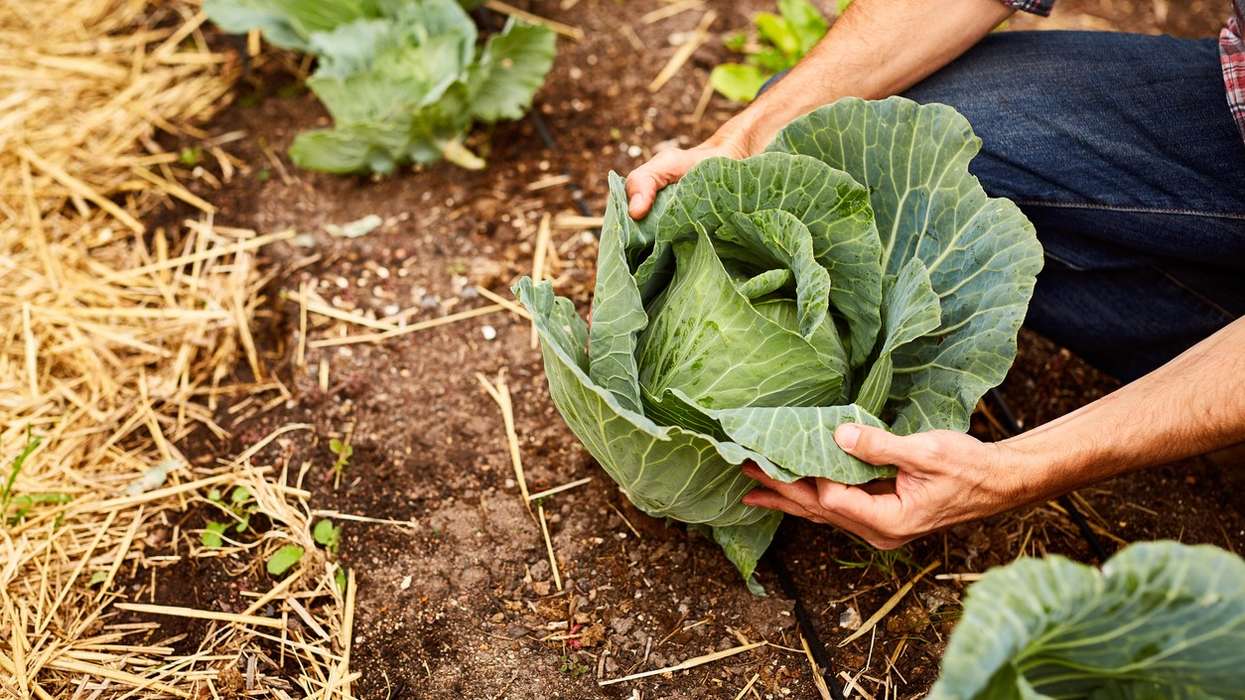Cabbage is available in plenty and in different varieties. Though, it may not be too exciting, this cruciferous veggie is a storehouse of nutrients and contains folate, fibre, magnesium, potassium, vitamins A and K and more.
Cabbage which comes in green, red, and white forms acts as a great immunity booster, as it is rich in vitamin C, the same way oranges are.
"Cabbage is high in the antioxidant vitamin C," Keri Gans, a New York-based registered dietician and nutritionist, earlier told Health.
This versatile vegetable can be eaten raw, as a salad and can even be added to soups or stew. It can also be fermented and converted into sauerkraut.
As cooking the cabbage too much can rob the food of its nutrients, "You want to avoid long cooking methods and boiling," said Maxine Smith, a registered dietitian at Cleveland Clinic's Center for Human Nutrition.
Instead, stick to quicker-cooking methods, like stir-frying or chopping up the veggie and eating it fresh in a salad or slaw, she said.
“The vegetable is a member of the same family as broccoli, cauliflower, and Brussels sprouts, among others. But while it comes with loads of health benefits, you must prepare it the right way to reap them,” Smith said.
Health benefits of cabbage
Additionally, consuming green leafy vegetables like cabbage is beneficial in winter. Vitamin C from cabbage can help the body to absorb iron, and can make collagen that helps wounds to heal, and bolster your immune system to help you stay protected from disease.
Smith is reported to have said, "The cabbage family has been associated with having immune benefits, so it helps our cells attack invaders such as viruses.”
Studies also suggest that increased consumption of plant-based food can reduce the risk of chronic diseases such as obesity, diabetes, heart disease and so on. So right from boosting energy to aiding in weight loss, cabbage can offer various health benefits.
Taking to Instagram, Lovneet Batra, a nutritionist recently wrote, "Cabbage popularly called patta gobi in India is one of the most important vegetables grown worldwide. It belongs to the family Cruciferae, which includes broccoli, cauliflower, and kale. Despite its impressive nutrient content, cabbage is often overlooked but the benefits you can derive from this cruciferous vegetable will surely compel you to include it in your diet."
The nutritionist lists the various benefits of consuming cabbages:
- Helps prevent cancer: The sulfur-containing compound known as sulforaphane gives the vegetable its bitter taste and specifically gives cabbages their cancer-fighting power. Sulforaphane helps inhibit the progression of cancer cells. Anthocyanins, the powerful antioxidants which provide vibrant colour to red cabbage, slow down the formation and even kill the already-formed cancer cells.
- Helps support brain health: Cabbage may be rich in vitamin K, iodine, and antioxidants like anthocyanins. Such elements can be beneficial as they act as building blocks for the brain. According to studies, cruciferous vegetables such as cabbage help reduce the level of bad tau proteins that are found in the brain of Alzheimer's patients.
- Keeps inflammation in check: Cruciferous vegetables such as cabbage contain different antioxidants that have been shown to reduce chronic inflammation. Sulforaphane, kaempferol and other antioxidants that is found in this group of plants are responsible for their anti-inflammatory effect.
- Helps lower blood pressure: Potassium helps keep blood pressure within a healthy range. Increasing potassium-rich food consumption like cabbage helps lower high blood pressure levels.
According to the US Department of Agriculture (USDA), two cups of raw cabbage pack nearly five grams of fibre – the recommended daily intake is 21 to 38 grams for older children, teenagers, and adults informs Health.
Additionally, Gans states that "Cabbage is a good source of fibre [and] fibre may help alleviate constipation, balance blood sugar levels, lower cholesterol levels and improve digestive health.”
The nutritionist also informs that cabbage contains a nutrient that is hugely important to both bone health and healthy blood clotting functions in the body: vitamin K.
Gans further adds, “Cabbage is very low in calories. One cup of cooked cabbage is only 34 calories, making it an excellent option for weight management.”
Cabbage is also a heart-healthy food. "Cabbage has been shown to have anti-inflammatory benefits, therefore recommended for those individuals who are at risk for heart disease," she said.
In fact, a study published in the British Journal of Nutrition in 2021 discovered that eating more cruciferous veggies can protect against that buildup of calcium and thereby, ultimately help to improve heart health.
Furthermore, cabbage like all cruciferous vegetables, contains compounds called glucosinolates. Smith is quoted as saying, "The glucosinolate content in cabbage gives it its reputation as having anti-cancer benefits. [It] has been related to decreased risk for various types of cancer.”




